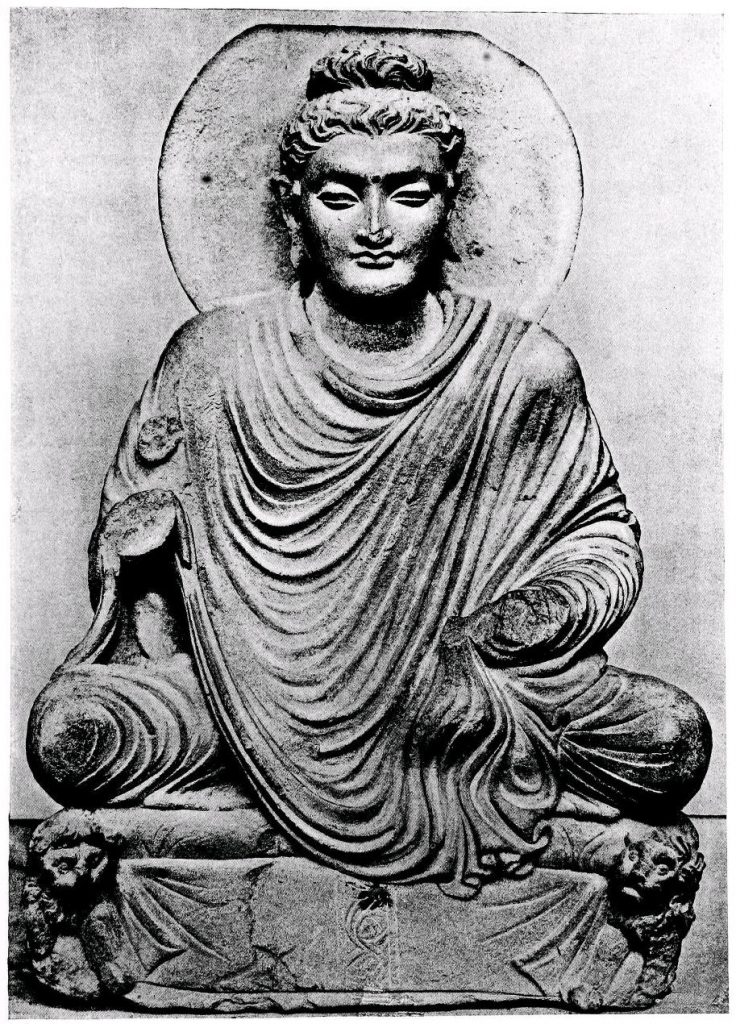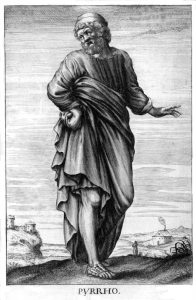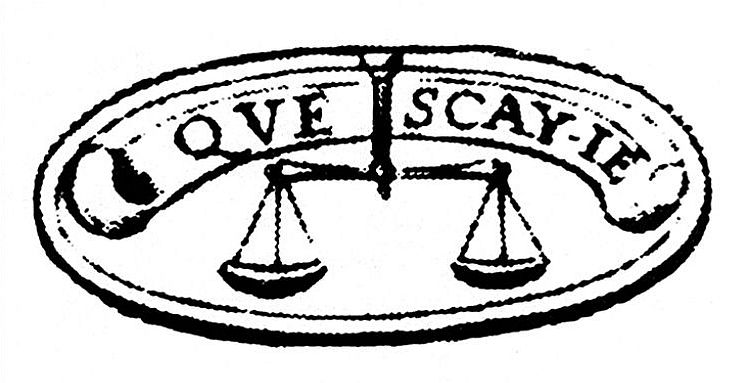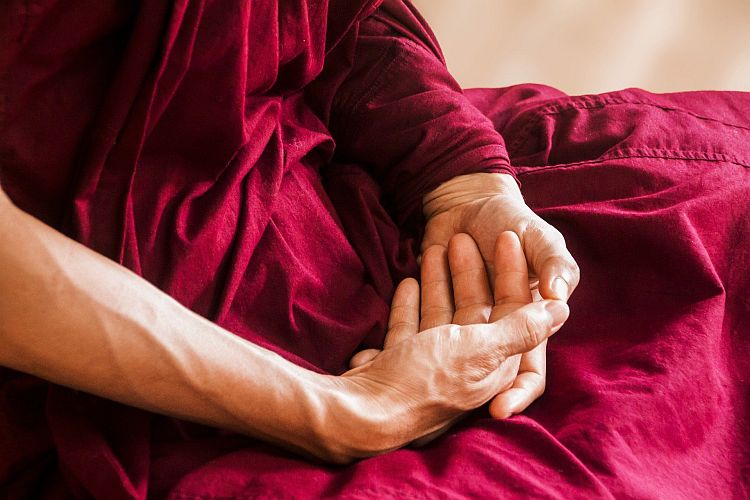Views: 138

 My journey on the path started a long time ago; initially started by an old secondary school teacher who pointed out the differences between the various religions that existed in the modern world. She called it Religious Education and I have a feeling she was just supposed to stick to Christian Dogma.
My journey on the path started a long time ago; initially started by an old secondary school teacher who pointed out the differences between the various religions that existed in the modern world. She called it Religious Education and I have a feeling she was just supposed to stick to Christian Dogma.
Over several weeks we explored world religions, and it should come as no surprise that I was attracted to Buddhism. The religion that depended on no external agency to prop you up. I was always fiercely independent, and I guess it just made sense to me.
Since that time I have immersed myself in the various schools of Buddhist thought, but lurking like a shadow behind me was a fascination for the Hellenistic traditions. Greek philosophy had always interested me, but I was unlikely to study the Greek Classics in a secondary modern school in the North East of England.
I first noticed these traditions when I took up a study of astronomy at the age of 11.
I loved looking at the sky at night, and I remember my first book on astronomy vividly. In fact, I still have it. It was the ‘Observers Book of Astronomy’. A small slim volume that was filled with images of constellations and pictures of nebulae, clusters, spiral galaxies and the planets.
I remember learning the Greek alphabet from that book.
“Learning the Greek alphabet?” I hear you ask…
Let me explain.
Stars are of varying brightness and in order to catalogue them, astronomers of ages past used the Greek alphabet as a prefix for the star’s name.
So the constellation of Canis Major (The Great Dog from Greek mythology) is made up of stars of varying brightness. The brightest star in that constellation Sirius is called Alpha Canis Major.
Alpha being the first letter of the Greek alphabet. Beta is the second and so on.
My point is is that I had a fascination for all things Greek but didn’t pursue it as a philosophical subject. I was heavily invested in Buddhism and wouldn’t allow myself to be distracted by all this ‘Western Philosophy’.
As my interest in Buddhism developed and my thinking matured, I took an interest in the historical aspects of Buddhism, but information back then was scarce and there were lots of gaps in my knowledge. Gaps that were being gradually filled by the work of Trevor Ling in his book ‘The Buddha’.
At last someone was putting Buddhism into context, using hard data and evidence rather than repeating hearsay.
None of my Buddhist teachers could answer the questions I threw at them, and they kept the party line, parroting what their teachers had taught them with little recourse for independent thinking.
A very dogmatic approach to Buddhism.
I was shocked they hadn’t looked at what the academics were doing, and I was simply admonished and told to concentrate on practicing Buddhism.
Whatever that meant!
No one for example challenged the ideas of karma and rebirth. Concepts that seemed to contradict many of the ideas that early Buddhism talked about.
But even the so-called primary sources (The Pali Canon) were full of contradictions, and I needed more. I was hungry for information that would help me come to terms with the human condition. I was having an existential crisis!
I read as much as I could on what we knew of early Buddhism and reconciled myself to the fact that I needed to follow my own path (as the Buddha always recommended), when I came across a kindred spirit in the form of Stephen Batchelor. He had the same doubts as me, and I guess many others, and was writing about the subject using Pali texts and referenced Western philosophers too.
I noticed he often referred to the Greek philosopher Pyrrho, and this intrigued me. I had heard of Pyrrho the Skeptic and had not been lucky enough to read the ‘Works of Sextus Empiricus’. I just didn’t see it being relevant at that time.
It was, it turns out, the missing link.
The piece of the puzzle and the key to a new door.
It was just what I needed.
Before I turned into a dogmatist!
I instantly began to study the Greek philosophers, and I soaked up their ideas like a sponge. Just when I thought I was getting my head around Skepticism along came Adrian Kuzminski and Christopher Beckwith.
They suggested that the Indians had influenced The Greeks (although some academics say it may have been the other way round) and cited specifically Pyrrho and his ideas.
I was onto something.
Suddenly everything became clear. Many of the problems I had been having with traditional Buddhist thought started to evolve and to change. I meditated on these ideas and the old accretions of Buddhism I had been clinging onto dropped away. Even Zen started making sense and I was able to reread Nagarjuna and make sense of it for the first time.
So where does that leave me?
I am constantly going on about maps and how we can expand our maps. Before these events happened, I thought my map was pretty good. It turns out I only had the one!
Now I have an atlas!
One of the maps in my new atlas concerns meditation.
This has always been an important chapter for me and has guided me through many hard times.
I thought I knew all about it but then…
I also learned that the Greeks never had a tradition of practicing meditation in the sense that the Indian traditions followed.
Although Pyrrho evidently spent 5 years with Alexander the Great on his campaigns in India, where he met Sramanas (Holy Men) and gymnosophists who undoubtedly practiced yogas of some kind, he never brought back to Greece the idea that meditation was a useful tool.
It didn’t seem to be important to ones journey to achieve tranquility.
The Buddhists call this Nirvana, and Pyrrho called it Ataraxia.
When I read this, it reminded me of some early discourses of the Buddha, when it was said that people became “awakened” just by hearing the Buddha talk.
This idea that you needed to meditate for years to achieve tranquility was therefore probably not necessary. My teachers had taught me that meditation was a prerequisite to enlightenment.
That enlightenment (whatever that means) could only be achieved by certain people, and that it was revelatory and almost otherworldly. It was inevitably linked to other ‘truths’ such as karma and rebirth!
Dogmatic nonsense…
In fact, it was said that many people understood his teachings just by listening. I’m also sure that the Buddha just didn’t sit in meditation (which is the usual image associated with the Buddha) but that he entered into discourse and argument with many other learned teachers of his time. Just as Pyrrho and other philosophers had done in Ancient Greece.
So why am I going on about this then?
Because it has changed the way I meditate and it may help you if you have reached a sticking point.
Sometimes I do just sit and at other times I think of a belief I have and pull it apart. I dissect it and put counter arguments together until the belief itself has no meaning and I ‘suspend judgement’ and it has been revelatory.
I will explore this method in much more detail in my next post and this will be the subject of my forthcoming book:
Beyond Beliefs




